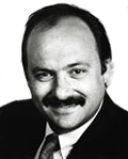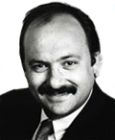Bipolar Disorder
Blowing Smoke: Dopey Diagnoses
Stoned, mellow, copacetic and cool. But not Bipolar!
Posted April 27, 2011
To paraphrase Peter Finch, I'm sick and tired and I'm not going to remain silent anymore! I'm sick and tired of the bogus diagnoses, treatments, prescriptions, disability benefits, SSI, Medicare and Medicaid and endless excuses given to potheads. Yes, I'm serious, all of the drug abuse and drug addicted and drug addled reefer smoking dopes who acquire diagnoses and prescriptions and benefits. Billions of dollars per year are wasted out of the healthcare, social welfare, unemployment, and other huge budget items on these waisted wastrels.
Well, obviously I'm not a big supporter of marijuana use, legally or illegally. Medicinally it's available in tablet form, Marinol, the efficacy of which is just as good as the smoking kind for the treatment of glaucoma or terminal cancer pain. Certainly in the latter case I don't object to any form of administration. But it's not a viable or real treatment for anxiety, depression, hiccups, insomnia, or anything else.
As a matter of formality in medicine, psychiatry, addiction medicine--anything mainstream--it is a matter of fact that accurate primary psychiatric diagnoses cannot be made in patients who are intoxicated, addicted, in withdrawal, or who have not been sober for six months. This means that the symptomatology can be described empirically as consistent with bipolar, depression, anxiety, panic, whatever, but the diagnosis formally must be stated as a substance induced secondary problem. Furthermore it is impossible to treat these people effectively when they continue to use.
Cannabis is an enormous problem. It is highly lipophilic. This means it binds strongly to fatty tissues. And the brain contains an enormous amount of fatty tissue. Hence, one single use of THC is strongly bound in the central nervous system and remains there for 30 days. Do the math. Utilization more often than every 30 days results in ever increasing levels of THC in the brain and a state of constant intoxication. Weekend use, let alone daily use and hourly use as is so common amongst the card-carrying stumble bums here in California leads to super saturation of the central nervous system with THC. This is not a benign circumstance.
Progressive impairment occurs in cognitive function, attention and concentration, sleep quality, and overall functional capacity. Depression, anxiety, panic, lability, disinhibition, and psychosis ensue. Having never used the stuff and gotten “high" I don't know how good that feels but I do know that as brain levels increase with frequency of use tolerance and tachyphylaxis ensue. This requires ever-increasing frequency and intensity of dose to achieve the same buzz. And the withdrawal that occurs when one attenuates use or attempts to quit results in a plethora of neuropsychiatric symptoms which drive continued abuse. Yes, withdrawal. No, not delirium tremens or Jones-ing. But anxiety, depression, irritability, lability; virtually all of the diagnostic criteria for mood, anxiety and sleep disorders as well as somatoform, dissociative and other squirrelly complaints.
Yet family doctors, school counselors, and too many psychiatrists, psychologists, social workers and other forms of therapists suggest and formalize diagnoses that are not there–at least not in a primary, intrinsic, endogenous form. But they label these patients, disable these patients, further medicate these patients, enable these patients, excuse them from adolescent and adult social, financial, family, academic and work responsibilities, and lavishly entitle them to benefits they really should not have. In the vast majority of these cases no one, repeat no one has addressed the drug abuse/addiction. In many of these cases no one has enquired about drug use, or tested for drug use. Or they have shrugged it away as incidental and unrelated to the medical and neuropsychiatric symptomatology these patients present. Most of these patients/addicts claim they don't know and have never been told (or are so scrambled they can't remember what they were told) that the THC stays in their brain for one month after one use and builds up progressively with increased frequency and intensity of use.
When I address this I frequently hear some variation on, “hey man, y'know, like, well, I got a marijuana card! My marijuana doc sez it ain't a problem, like, y'now, man, 'cause I need it for my hemorrhoid's, man!” Is this really copacetic? Not to me.
Let us not be diverted into facetious discussions about the legality of alcohol, tobacco, and various prescription medications. This is not about the legal/illegal conundrum nor the potential boon in tax revenue that might accrue from the sale of legal dope.
Cannabis is not benign. It is addictive. It is mind altering. It arrests your emotional development at the moment you begin use just as do other mind altering substances. And I include in this list improperly prescribed psychotropic drugs. It is an entry-level drug for self treating undiagnosed or untreated individuals with ADHD and it does lead to bigger and worse things in these folks. It causes and/or exacerbates depression, anxiety and panic. It makes your bipolar illness virtually impossible to treat because of its dis-inhibitory effects. But getting whacked out on cannabis doesn't prove you have a primary bipolar disorder. You need to be sober for at least six months to clarify that. But if you are bipolar and reasonably stable with reasonable treatment you can be assured of a ready decompensa-tion and a lot more potent psychotropic drug prescriptions with manifold side effects (how about the metabolic syndrome and tardive dyskinesia and lithium induced renal insufficiency and renal failure for starters) with marginal benefits and progressive debility.
True, there are functioning alcoholics. And there are functioning marijuana abusers and addicts. Is their function optimal? I don't know but I would tend to doubt it. But then people in these categories don't tend to be the ones that end up in the emergency room, hospital or my office with putative diagnoses of bipolar disorder, panic disorder, schizoaffective disorder, ADHD and many more, aggressively demanding I sign forms for SSI, disability, excuses from school, work and all forms of responsible adult life. They are bitterly disappointed, enraged, belligerent and often threatening. I refer them back to their marijuana doctors, and/or for rehab. I'm not a lawyer but I don't think I a marijuana card gets you off the hook anymore than a legal Vicodin prescription if you run over a child in a crosswalk.
It comes down to this: if you're using marijuana that is your primary problem and your primary diagnosis. If you have any psychiatric, psychological, emotional, social, and many medical complaints they are all secondary and uncertain unless and until you have attained and maintained sobriety for at least six months. In the view may have need for some psychotherapeutic and psychopharmacological therapy during that period of time but the fact of that therapy and the response to it do not prove any other primary diagnosis. I expect this will irritate many people who toke up regularly but then again it is primarily their problem. It is, however a burden that the rest of us bear.




